Explore the fundamentals of relationship coaching, common issues, effective communication techniques, goal setting, personal growth impact, and tips for choosing the right program.In today’s fast-paced world, maintaining healthy relationships can often prove to be a daunting challenge. Whether you’re facing communication barriers, navigating conflicts, or simply seeking to deepen your connection, professional guidance can make a significant difference. Enter relationship coaching—a supportive approach designed to foster understanding, improve communication, and reignite passion between partners. In this article, we’ll delve into the top relationship coaching techniques you should know, equipping you with valuable insights to enhance your bond. From understanding the basics and identifying common issues to exploring effective communication methods and setting realistic goals, we’ll cover essential aspects that pave the way for personal growth and harmonious relationships. Join us as we uncover how the right relationship coaching program can transform your love life, allowing you to thrive both individually and as a couple.
Understanding The Basics Of Relationship Coaching
Relationship coaching is a specialized area that focuses on helping individuals or couples improve their interpersonal dynamics and overall satisfaction in their relationships. The role of a relationship coach is to facilitate personal growth by providing valuable insights and guidance. Coaches often employ various relationship coaching techniques to address specific issues, fostering an environment where clients can explore their feelings, enhance communication, and develop a deeper understanding of one another.
At its core, relationship coaching emphasizes creating a safe space for clients to express their thoughts and emotions. This includes techniques that promote active listening, which encourages partners to hear each other without judgment or interruption. Coaches often teach the importance of emotional intelligence, enabling individuals to be more aware of their emotions and those of their partners, thus facilitating healthier interactions.
Moreover, successful coaching incorporates conflict resolution strategies that empower couples to address disagreements constructively. By understanding the underlying causes of conflicts, couples can learn to navigate challenges more effectively. These strategies not only resolve current issues but also build a solid foundation for handling future conflicts. The combination of these methods fosters stronger, more resilient relationships.
Ultimately, relationship coaching seeks to equip partners with the tools they need to nurture and sustain meaningful connections, helping them move beyond obstacles and enhance their relational satisfaction.
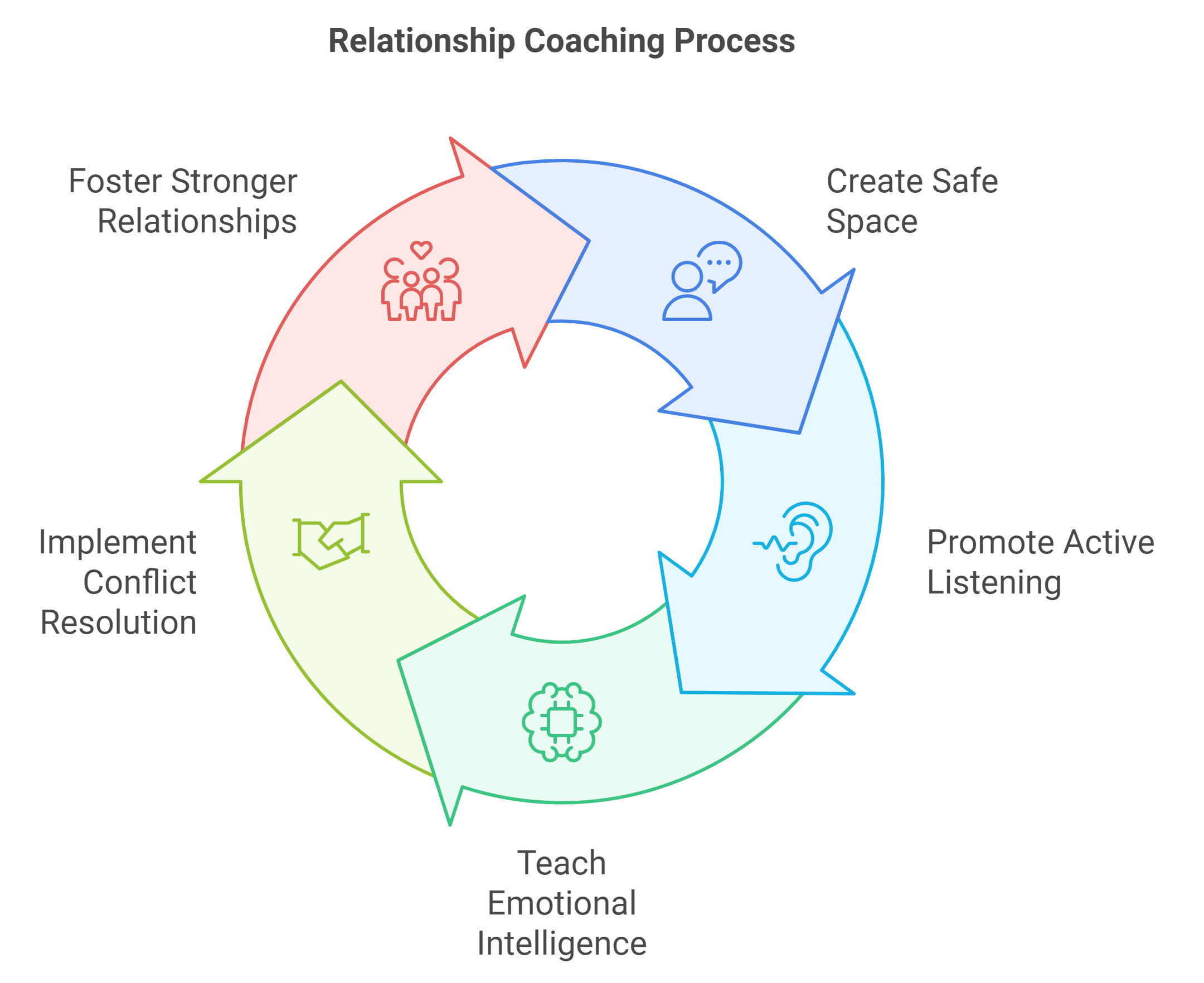
Identifying Common Relationship Issues In Coaching
In the realm of relationship coaching, pinpointing the underlying issues that couples face is a crucial step towards achieving resolution and fostering healthier connections. Various challenges can arise in relationships, and recognizing these issues allows for targeted interventions and effective relationship coaching techniques.
- Communication Problems: Misunderstandings and miscommunications are common barriers. Couples often struggle with expressing their thoughts and feelings, leading to emotional distance. Enhancing effective communication skills is key to overcoming this hurdle.
- Conflict Resolution: Disagreements are inevitable in any relationship. However, couples may lack the proper conflict resolution strategies to navigate these conflicts constructively. Coaching can help couples develop healthier methods to address their differences.
- Emotional Disconnect: Partners may feel distant or emotionally unavailable due to unmet needs or past grievances. Building emotional intelligence through coaching can help partners reconnect and foster intimacy.
- Trust Issues: Trust is fundamental to any relationship, and breaches of trust can bring about significant challenges. Identifying the root causes of these issues and working on rebuilding trust is vital in the coaching process.
- Different Goals and Values: Couples often enter relationships with differing life goals or core values, leading to conflicts. Through coaching, partners can align their objectives or learn to respect their differences while finding common ground.
- Managing Expectations: Unrealistic expectations can create disappointment and frustration in relationships. Coaches can guide couples in setting achievable expectations to create mutual satisfaction.
Addressing these common issues in relationship coaching lays the groundwork for a healthier partnership, enabling couples to thrive emotionally and relationally. By utilizing active listening and other vital skills, couples can foster a deeper understanding and connection. Recognizing these challenges is just the beginning of the transformative journey that relationship coaching can provide.
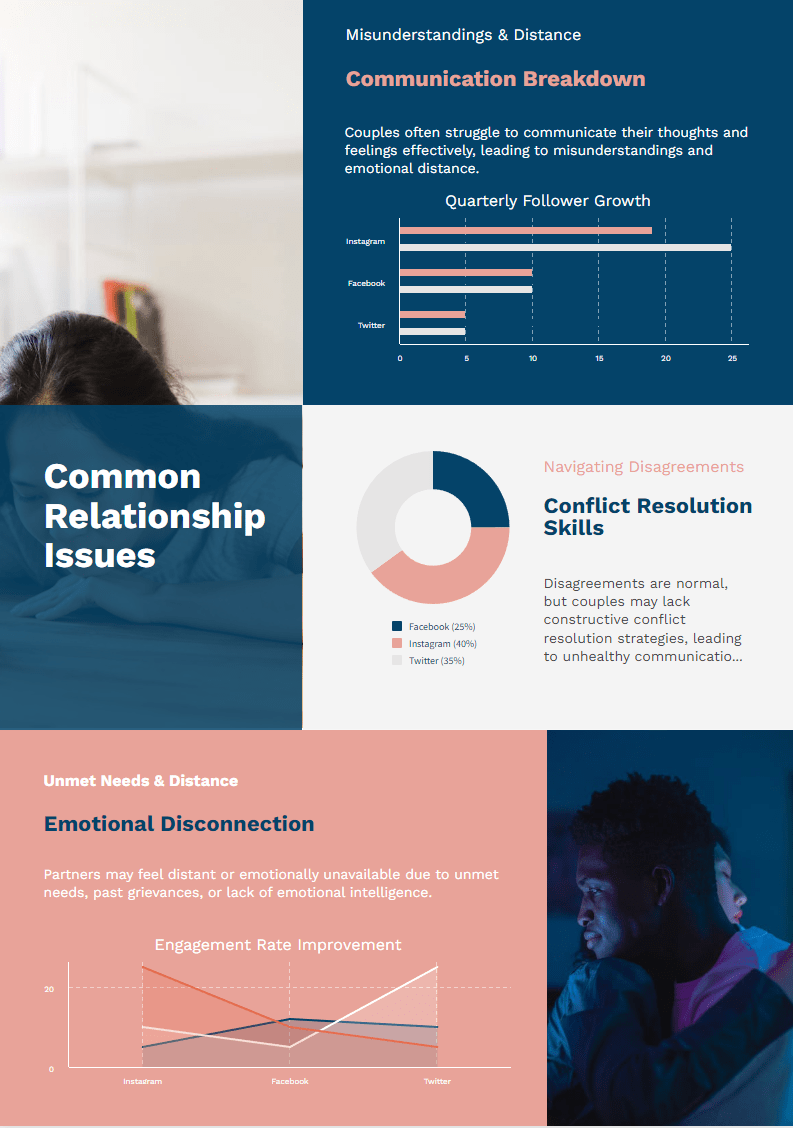
Techniques For Effective Communication In Relationships
Effective communication is a cornerstone of any healthy relationship, and understanding the techniques that enhance this aspect can significantly improve relational dynamics. Here are some vital relationship coaching techniques designed to foster better communication:
1. Active Listening
Active listening is more than just hearing the words being spoken. It involves fully engaging with what your partner is saying. This includes understanding their perspective, asking clarifying questions, and summarizing what you’ve heard. By practicing active listening, individuals can create a safe environment that encourages open dialogue.
2. Emotional Intelligence
Developing emotional intelligence allows individuals to navigate their own feelings and understand their partner’s emotions better. This skill helps in recognizing emotional triggers and responding thoughtfully, which can mitigate conflicts and enhance understanding.
3. Non-Verbal Communication
About 93% of communication is non-verbal. Being aware of body language, tone of voice, and facial expressions can greatly enhance the clarity of your messages. Couples should be mindful of their non-verbal cues to ensure they align with their verbal communication.
4. Conflict Resolution Strategies
Every relationship will face conflicts. Implementing effective conflict resolution strategies can help partners communicate their disagreements without damaging their relationship. Techniques such as using I statements, remaining calm, and focusing on solutions rather than accusations are vital.
5. Setting Aside Time for Conversations
In our busy lives, it’s easy to let important discussions slide. Couples should make it a priority to set aside time for open conversations. Prioritizing these discussions can help both partners feel valued and understood.
Utilizing these relationship coaching techniques can lead to more meaningful conversations, fostering stronger connections and a healthier relationship overall.
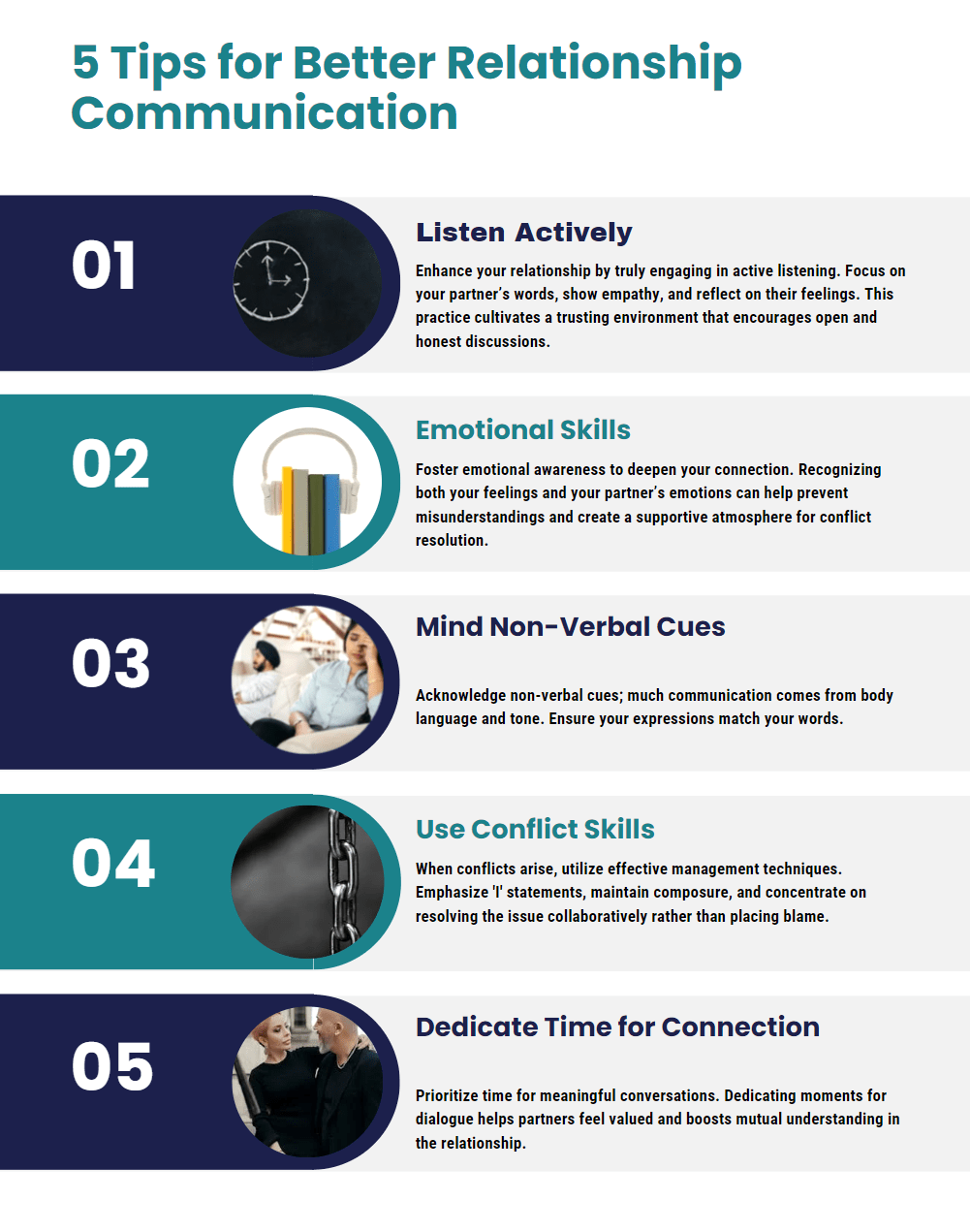
Goal Setting In Relationship Coaching For Couples
One of the fundamental components of relationship coaching is the practice of setting specific, measurable, and achievable goals. Goal setting serves as a roadmap for couples looking to enhance their relationships. By identifying where they currently stand and where they want to be, couples can create a structured plan to facilitate their growth together.
Relationship coaching techniques often emphasize the importance of aligning individual aspirations with shared objectives. This alignment fosters a sense of partnership and accountability. Here are key aspects to consider when setting goals in relationship coaching for couples:
| Goal Type | Description | Examples |
|---|---|---|
| Communication Goals | Improve how partners express thoughts and feelings. | Practice active listening for 30 minutes daily. |
| Conflict Resolution Goals | Develop strategies to address disagreements constructively. | Agree to use conflict resolution strategies during arguments. |
| Emotional Intelligence Goals | Enhance the ability to understand and manage emotions. | Identify one emotional trigger weekly to discuss. |
| Quality Time Goals | Prioritize shared activities to strengthen the bond. | Schedule a weekly date night. |
When establishing these goals, couples should keep the SMART criteria in mind:
- Specific: Define the goal clearly.
- Measurable: Determine how progress will be assessed.
- Achievable: Ensure the goal is realistic.
- Relevant: Align it with the couple’s long-term vision.
- Time-bound: Set a deadline for achieving the goal.
Additionally, regular check-ins can reinforce commitment to the goals. Using tools such as journal reflections or progress assessments during coaching sessions can facilitate open discussions about challenges encountered along the way.
Ultimately, effective goal setting in relationship coaching not only helps couples resolve their issues but also cultivates their personal growth and the overall health of their relationship.
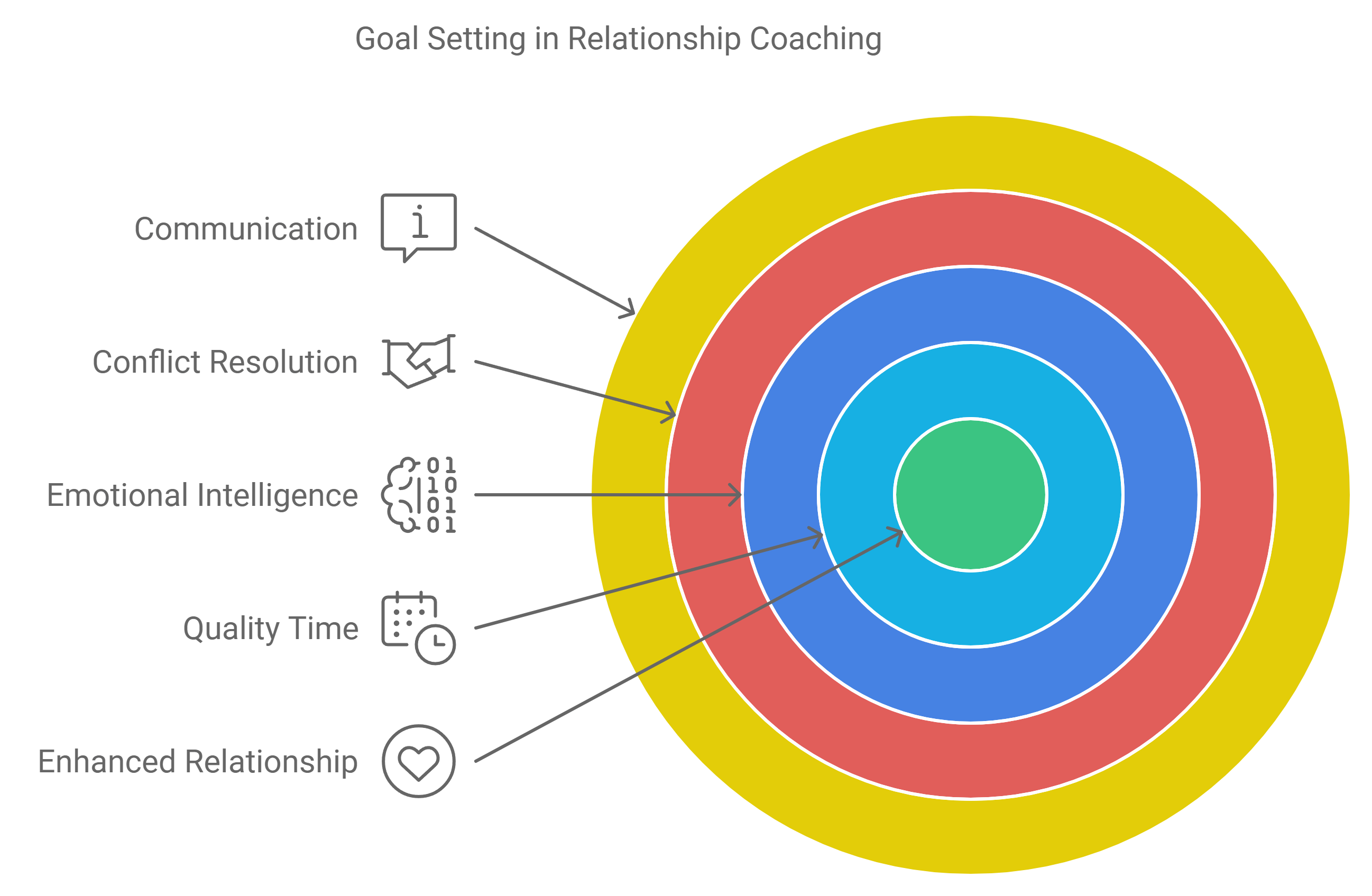
The Impact Of Relationship Coaching On Personal Growth
One of the most profound impacts of relationship coaching is the significant enhancement of personal growth it fosters in individuals. Engaging with a relationship coach not only improves interpersonal skills, but also encourages self-reflection and personal accountability. As clients dive into their relationship dynamics, they often discover underlying patterns that affect both their relationships and their personal lives.
Through the use of relationship coaching techniques, individuals can unlock greater levels of emotional intelligence. This expanded emotional awareness helps clients understand their own feelings as well as those of their partners. As individuals develop skills in effective communication and active listening, they build a stronger foundation for not only healthier relationships, but also a more fulfilling personal life.
Moreover, conflict resolution strategies taught by relationship coaches empower individuals to handle personal conflicts more constructively. This transformation leads to more harmonious relationships and paves the way for personal resilience. Clients often find that they emerge from coaching not just as better partners but as more self-aware and emotionally adept individuals.
In summary, the journey through relationship coaching catalyzes growth that transcends romantic partnerships, equipping individuals with tools and insights that enhance various aspects of their lives. This holistic development serves to reinforce the belief that healthy relationships are as much about personal development as they are about partnership dynamics.
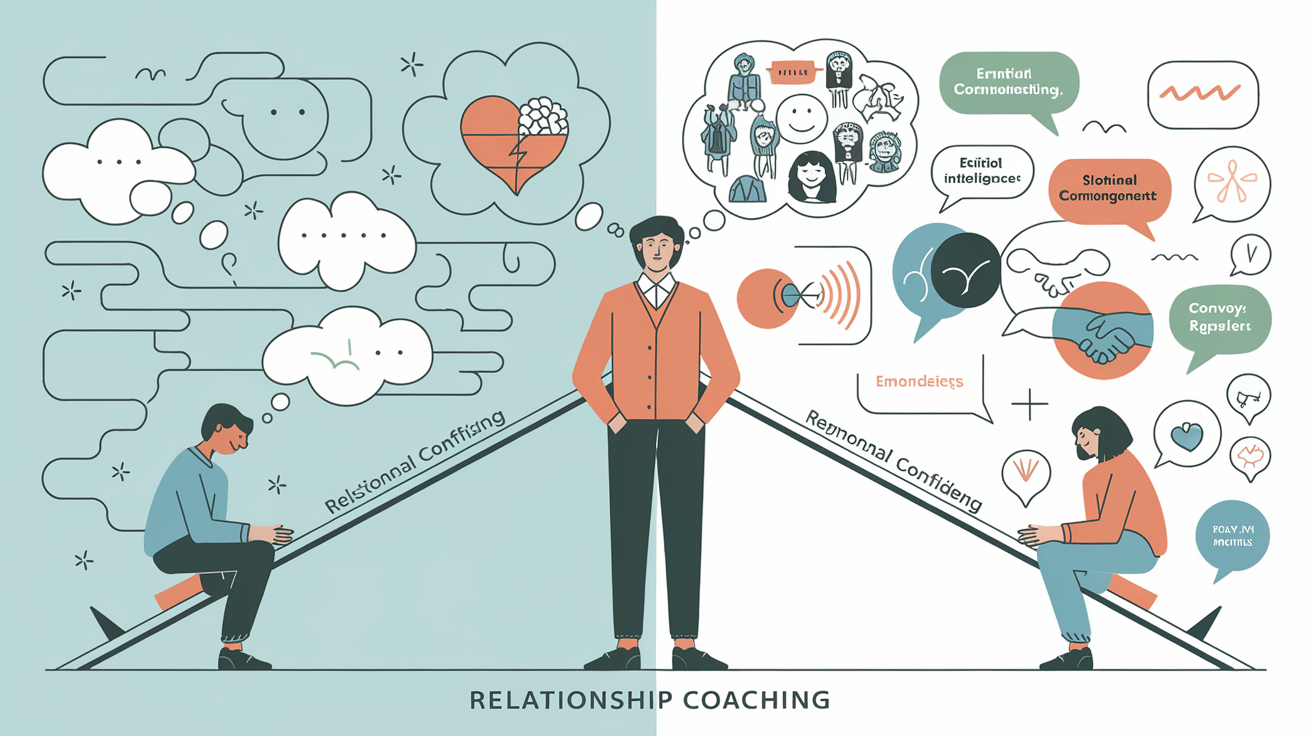
How To Choose The Right Relationship Coaching Program
Choosing the right relationship coaching program is crucial for achieving personal and relational growth. With numerous options available, it’s essential to consider several factors to ensure that you find a program that aligns with your needs and goals. Here are some key points to guide you in your decision-making process:
| Criteria | Considerations |
|---|---|
| Qualifications of the Coach | Look for coaches with relevant certifications and experience in relationship coaching. This ensures they have the necessary training to guide you effectively. |
| Techniques and Approaches | Inquire about the relationship coaching techniques used in the program. Programs that integrate effective communication strategies, conflict resolution strategies, and emotional intelligence training are often more beneficial. |
| Personalization | Choose a coaching program that tailors its approach based on your specific relationship dynamics and challenges. This creates a more intimate environment for growth. |
| Mode of Coaching | Consider whether you prefer in-person sessions or online coaching. Both can be effective, but select what works best for your comfort and schedule. |
| Reviews and Testimonials | Research reviews and testimonials from previous clients. This can provide insight into their experiences and the effectiveness of the program. |
| Trial Sessions | If available, take advantage of trial sessions. This allows you to assess the coach’s style and the program’s fit before making a financial commitment. |
In summary, selecting the right relationship coaching program requires careful consideration of various factors, including the coach’s qualifications, the techniques employed, and the overall suitability for your relationship needs. By doing thorough research and asking the right questions, you can find a program that not only resonates with you but also empowers you with the necessary tools for effective communication and relationship enhancement.
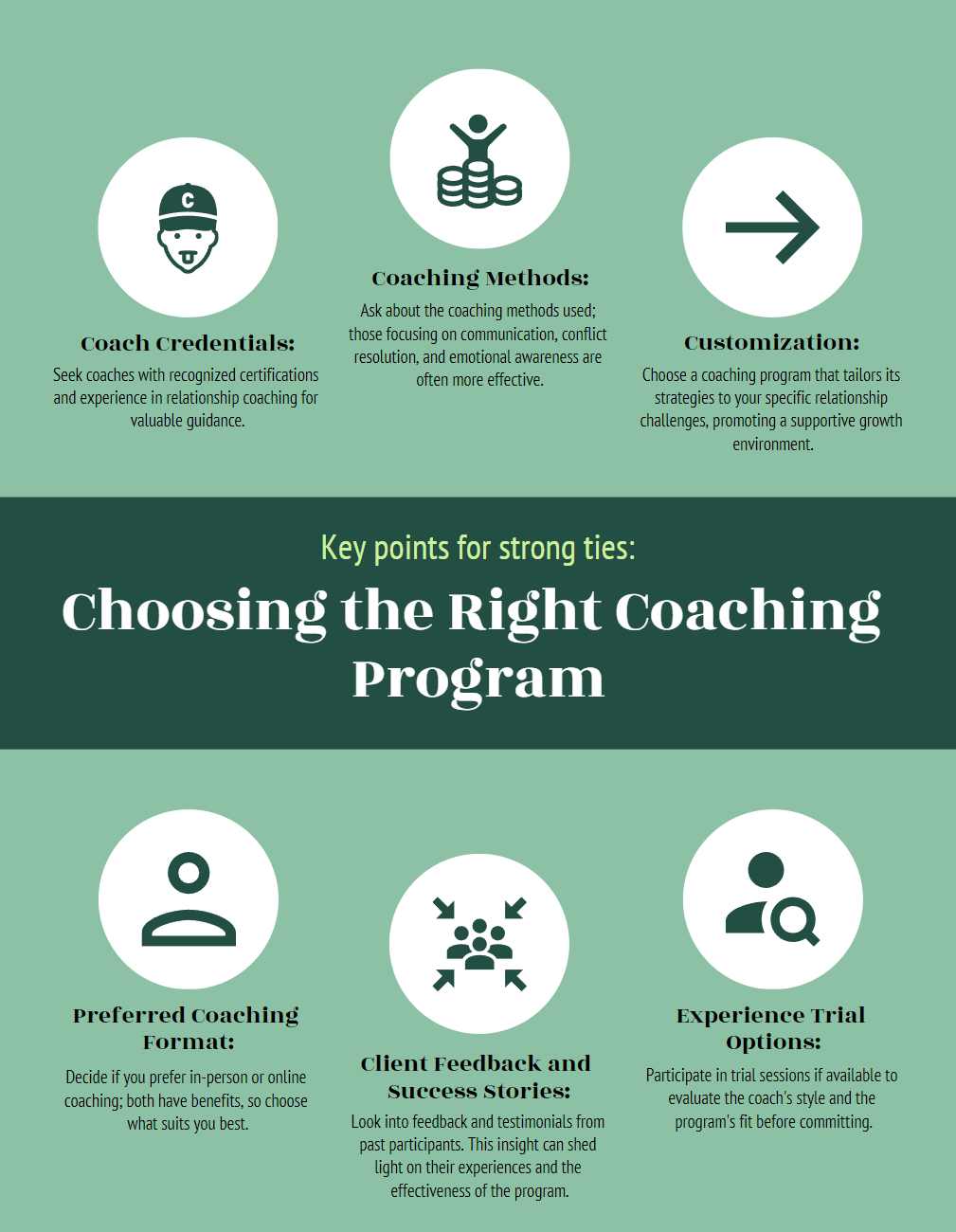
Frequently Asked Questions
What are relationship coaching techniques?
Relationship coaching techniques are strategies and tools used by coaches to help individuals and couples improve their relationships, enhance communication, and resolve conflicts.
Why is communication important in relationship coaching?
Communication is crucial in relationship coaching because it forms the foundation for understanding, trust, and emotional connection between partners. Effective communication techniques can significantly improve relationship dynamics.
Can relationship coaching help with conflict resolution?
Yes, relationship coaching can provide tools and strategies to address conflicts constructively. Coaches facilitate discussions and guide partners to understand each other’s perspectives and work towards solutions.
What role does empathy play in relationship coaching?
Empathy plays a vital role in relationship coaching as it helps partners recognize and validate each other’s feelings. Coaches often encourage practicing empathy to foster deeper emotional connections.
How can relationship coaching enhance emotional intimacy?
Relationship coaching can enhance emotional intimacy by encouraging open and honest conversations about feelings, needs, and desires. Coaches provide exercises and techniques that promote vulnerability and trust between partners.
Are relationship coaching techniques suitable for singles?
Absolutely! Relationship coaching techniques can also benefit singles by helping them understand their relationship patterns, improve self-awareness, and develop skills that contribute to healthier future relationships.
How long does relationship coaching typically last?
The duration of relationship coaching varies depending on the goals of the individuals or couples involved. Some may seek short-term support for specific issues, while others may engage in longer-term coaching for ongoing personal development.














